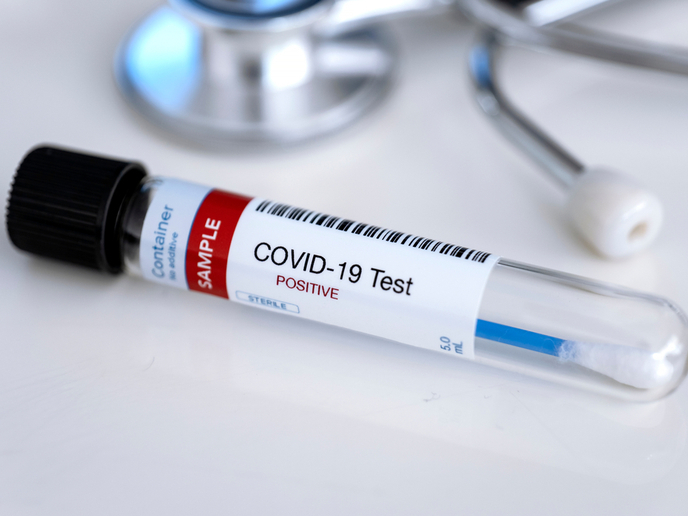Novel biosensor offers fast, accurate COVID-19 serological testing
The COVID-19 pandemic has made polymerase chain reaction (commonly known as PCR) and rapid antigen testing an everyday reality. Another essential tool – not for detecting active SARS-CoV-2 infections but for determining if someone has been infected in the past – is serological testing. Serological tests are important for controlling and managing pandemics. By detecting the presence of antibodies in the blood, they provide valuable information on the virus’ prevalence and greater insight into the dynamics of acquired immunity. Currently, COVID-19 serological testing is conducted using well-established immunoassay techniques. Traditional microplate-format immunoassays such as the enzyme-linked immunosorbent assay (ELISA) and chemiluminescence immunoassay (CLIA) are highly sensitive. However, they can only be conducted by trained personnel in specialised laboratories and can be time-consuming because of sample manipulation and/or long incubation times. On the other hand, immunochromatographic lateral flow assays (LFAs) yield results much more rapidly, but their lower sensitivity makes them not reliable or accurate enough. Researchers supported by the EU-funded CoNVat, EVA-GLOBAL and RAIS projects have now developed and validated an innovative serological nano-biosensor that rapidly identifies and quantifies SARS-COV-2 antibodies in blood serum. Producing a result in less than 15 minutes, the biosensor eliminates the need for sample pretreatment or lengthy processing. The research findings(opens in new window) have been published in the journal ‘Analytical Chemistry’. The optical sensing device is based on plasmonic technology. Called a surface plasmon resonance (SPR) biosensor, it employs a custom-designed multiantigen sensor biochip and achieves excellent limits of detection in serum – in the low nanogram-per-millilitre range. As reported in the study, this range is “comfortably below the estimated antibody levels in patients, which appear to be in the μg mL–1 range.”
Better than current commercial methods
To validate their biosensor technology, the research team carried out extensive testing on COVID-19-positive and -negative samples collected from patients in two hospitals in Barcelona, Spain. A total of 120 serum samples were analysed, of which 100 were confirmed positive and 20 were negative samples collected before the outbreak of the pandemic. The results produced using the biosensor technology were compared with those of well-established diagnostic methods (ELISA, CLIA and LFA). The novel device demonstrated a sensitivity of 99 % and a specificity of 100 %, outperforming these currently available techniques. “Considering decentralized technologies, the SPR biosensor can provide highly accurate detection of COVID-19 antibodies in a 15 min assay time (same as LFA), with a diagnostic reliability equivalent to ELISA and CLIA,” the authors report in the study. “Therefore, we herein have demonstrated the benefit promised by label-free plasmonic biosensor technology: simple, rapid, and reliable diagnostics.” The work carried out with support from the CoNVat (Combating 2019-nCoV: Advanced Nanobiosensing platforms for POC global diagnostics and surveillance), EVA-GLOBAL (European Virus Archive GLOBAL), and RAIS (Scalable, point-of-care and label free microarray platform for rapid detection of Sepsis) projects highlights the potential of SPR biosensors as an alternative tool for rapid diagnostics in clinical practice. For more information, please see: CoNVat project website(opens in new window) EVA-GLOBAL project website(opens in new window) RAIS project(opens in new window)



